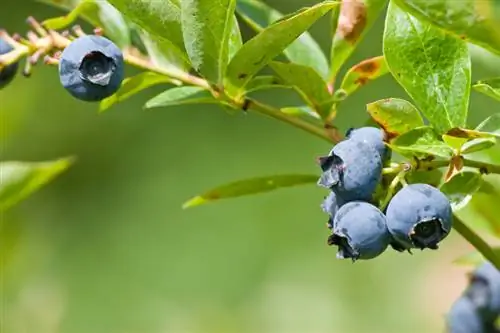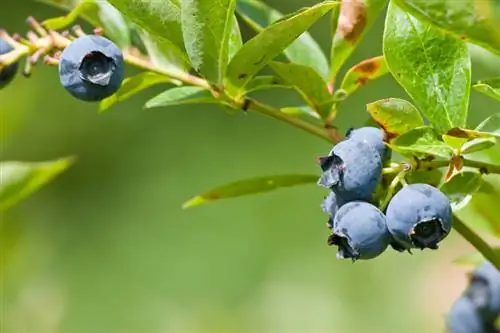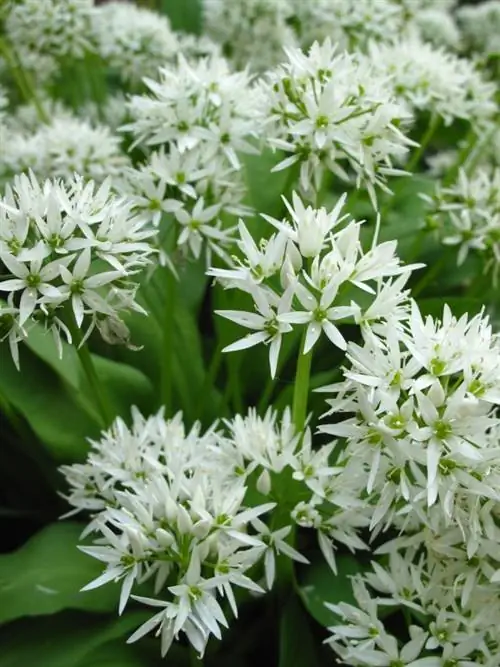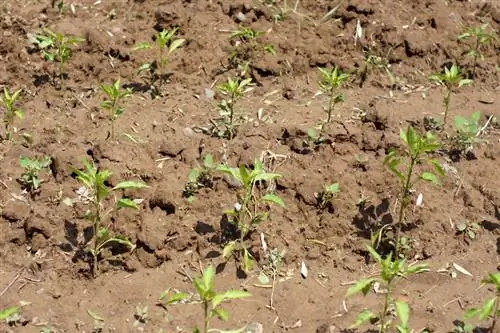- Author admin leonars@hobbygardeners.com.
- Public 2023-12-16 16:46.
- Last modified 2025-01-23 11:20.
The cultivated blueberries grown in the garden are only very closely related to the varieties that grow in the forest in this country. Nevertheless, they also require a location with rather acidic and lime-poor soil.

What does the ideal blueberry care look like?
To care for blueberries in the garden, they need acidic, lime-poor soil and sufficient water in dry conditions. Blueberries grown in pots should be provided with azalea or rhododendron soil and lightly fertilized if necessary. Cutting is not absolutely necessary, but old and long shoots can be shortened.
Do you have to water blueberries?
Blueberries are often found in full sun in the garden, which generally does not harm the varieties of the “Vaccinium” genus. However, bushes with a high fruit population should be watered sufficiently in times of drought so that juicy fruits can be picked in July and August.
Can blueberries also be grown in pots?
Growing blueberries in pots is often a good idea because your garden soil is very calcareous and clayey. In a pot, the acidic soil is much easier to achieve using commercially available azalea or rhododendron soil than in an outdoor bed.
How and when do you cut blueberries?
Basically, blueberries don't need to be cut regularly in order to keep producing crops. After a few years, the cultivated blueberries have reached a maximum height of around 2.5 to 3 meters. However, old shoots that are too long and at risk of breaking off should be shortened in order to promote budding and flowering. This can be done well after the harvest when there is no longer too much dryness and heat in autumn.
Do blueberries need to be fertilized?
Blueberries grown in the garden are also generally very frugal when it comes to absorbing nutrients. However, gentle fertilization with horn shavings (€52.00 on Amazon) can increase the amount of fruit to be collected. Whenever fertilizer is added, the location needs of the plants, which need acidic soil to thrive, should always be taken into account. This is why they are particularly suitable for gentle fertilization:
- Compost made from pieces of bark
- mulched conifer and cedar cuttings
- Compost from spruce and pine needles
Blueberries in winter
The blueberry cultivars sold in specialist stores are generally frost hardy in most outdoor locations. However, potted plants are exposed to much harsher temperatures than plants grown in the ground. A certain amount of wind protection and lowering the pots into the ground can protect against severe temperature drops in winter.
Tips & Tricks
The harvest time for blueberries in your own garden can be easily extended if early and late-ripening varieties are mixed and planted next to each other.






